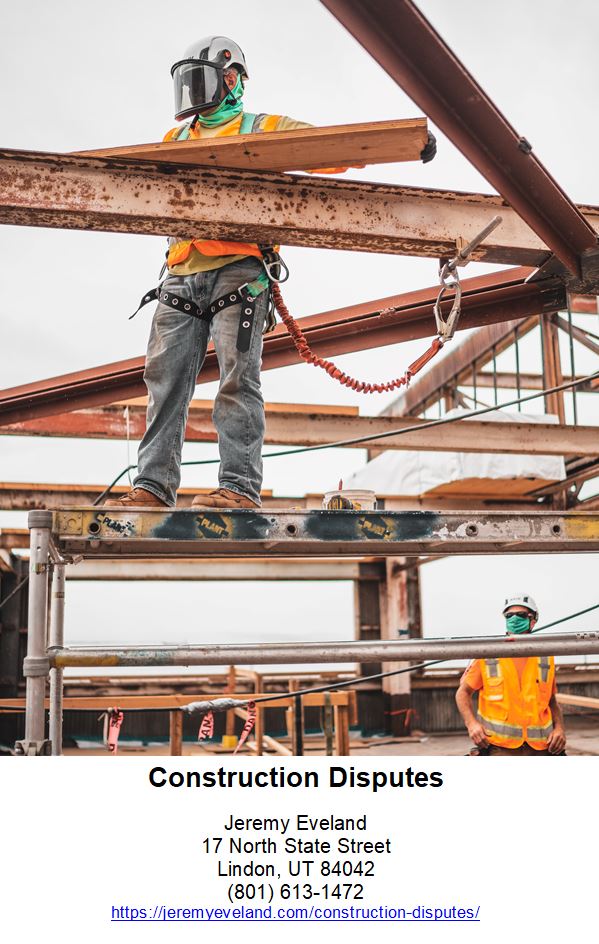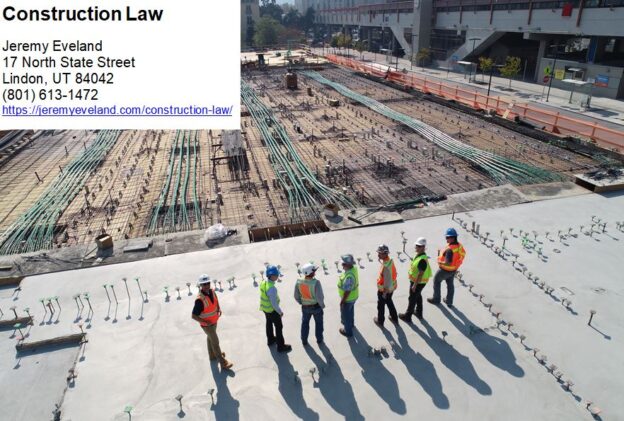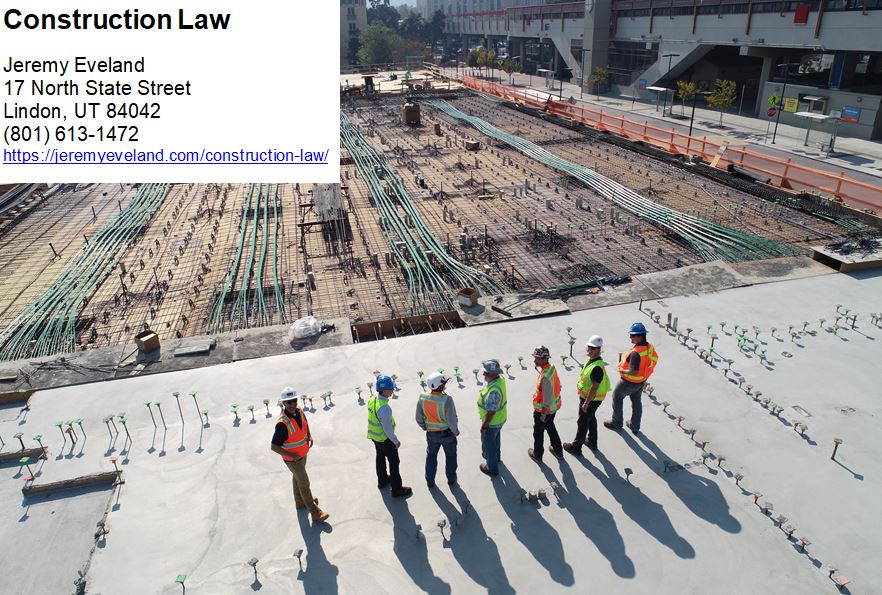If you’re involved in the construction industry, you may have come across the term “force majeure” in your contracts. But what does it really mean? In simple terms, force majeure refers to unforeseen events that are beyond the control of either party involved in a contract, such as natural disasters, strikes, or acts of war. These events can greatly impact construction projects, causing delays, disruptions, and financial losses. But don’t worry, you’re not alone. This article aims to shed light on force majeure in construction contracts and provide you with the necessary guidance and reassurance in navigating through these challenging situations. Keep reading to find out more about how force majeure affects construction projects and what steps you can take to protect your interests.

What is Force Majeure?
Force majeure is a legal concept that is commonly used in contracts to address unforeseen circumstances that may arise and prevent one or both parties from fulfilling their obligations under the contract. It is essentially a clause that allows the parties to temporarily suspend or terminate the contract in the event of such circumstances. The purpose of the force majeure clause is to allocate the risks associated with unpredictable events that are beyond the control of the parties involved.
Force Majeure Clause in Construction Contracts
In the context of construction contracts, the inclusion of a force majeure clause is vital due to the inherent uncertainties and challenges inherent in construction projects. Construction projects are subject to a wide range of external factors that can create delays or hinder progress. By including a force majeure clause in construction contracts, parties can address these unforeseen events in a comprehensive and mutually beneficial manner.
Inclusion in Contracts
The force majeure clause should be clearly defined and expressly included in construction contracts. This ensures that both parties are aware of the existence and implications of the clause. It is essential to carefully draft the language of the clause to ensure it covers all potential force majeure events that may impact the project.
Key Elements
A well-drafted force majeure clause should contain key elements to provide clarity and protection for both parties. These elements may include a specific definition of force majeure events, notification requirements, burden of proof considerations, and mitigation efforts. Each element serves a specific purpose and helps establish a fair and clear framework for addressing unforeseen circumstances.
Common Examples
Force majeure events in construction contracts can encompass a broad range of circumstances. Natural disasters such as hurricanes, earthquakes, and floods are often included as force majeure events. Unforeseen events like supplier or subcontractor failures, acts of terrorism, or labor shortages may also be covered. Government actions such as regulatory changes or permit delays, as well as labor disputes and strikes, may also fall under force majeure. These examples highlight the diverse range of events that can be classified as force majeure and impact construction projects.
Circumstances Covered by Force Majeure
Force majeure clauses in construction contracts are designed to cover various circumstances beyond the control of the parties involved. Let’s explore some common situations that are typically covered by a force majeure clause.
Natural Disasters
One of the most common circumstances covered by force majeure clauses in construction contracts is natural disasters. These events, such as hurricanes, earthquakes, wildfires, and severe storms, can cause significant damage to construction sites and hinder progress. Force majeure provides a mechanism for temporarily suspending or adjusting the contract in response to such circumstances.
Unforeseen Events
Unforeseen events that are beyond the control of either party are also often covered under force majeure provisions. Examples may include unexpected environmental hazards, equipment failures, or unforeseen geological conditions. These events can cause delays, disruptions, or even render the project impossible to complete as initially planned.
Government Actions
Government actions can have a significant impact on construction projects. Changes in regulations, permits, or zoning restrictions may occur during the course of a project, making it difficult or impossible to proceed as planned. Force majeure clauses can address these situations and provide a means for the parties to navigate the challenges caused by government actions.
Labor Disputes
Labor disputes, including strikes and work stoppages, are another circumstance that can trigger force majeure provisions. These disputes can disrupt construction projects by causing delays or even halting work altogether. By including labor disputes in the force majeure clause, the parties can address potential disruptions and determine the appropriate course of action.
Activating Force Majeure
Once a force majeure event occurs, there are certain steps that need to be taken to activate the force majeure clause in a construction contract. These steps are essential to ensure proper notification, burden of proof, and mitigation efforts.
Notification Requirement
The force majeure clause typically includes a requirement for the party affected by the event to provide timely notice to the other party. This notification allows both parties to evaluate the impact of the event on the project and determine the appropriate course of action. Failure to provide timely notice may affect the party’s ability to claim force majeure relief.
Burden of Proof
After notifying the other party, the burden of proof typically falls on the party seeking to rely on the force majeure clause. This means that the party affected by the event must demonstrate that the event falls within the scope of the force majeure clause and has had a significant impact on the project. Providing sufficient evidence to support the claim is crucial for the application of force majeure.
Mitigation Efforts
Even in the face of a force majeure event, parties are generally expected to mitigate the effects of the event to the best of their abilities. This may involve alternative approaches, seeking alternative suppliers or subcontractors, or adjusting the project schedule. Failure to make reasonable efforts to mitigate the impact of the force majeure event could affect the party’s ability to claim relief.
Legal Consequences of Force Majeure
When a force majeure event occurs and the force majeure clause is activated, certain legal consequences may arise. These consequences can vary depending on the specific terms of the contract and the applicable laws.
Contract Termination
In some cases, a force majeure event may be so severe that it renders the contract impossible to perform. In such instances, the force majeure clause may provide for the termination of the contract without penalty. This allows the parties to move on from the project and seek alternative arrangements.
Suspension of Performance
In other cases, the force majeure clause may allow for the temporary suspension of performance during the occurrence of the force majeure event. This gives the affected party time to address the event, mitigate its effects, and resume work once conditions improve.
Modification of Contract Terms
Force majeure clauses may also provide for the modification of certain contract terms in response to the force majeure event. This could involve adjusting the project schedule, revising payment terms, or making other changes to accommodate the impact of the event on the project.
Challenges in Force Majeure Applications
While force majeure clauses are intended to provide clarity and protection, there can be challenges in their application. Let’s explore some common challenges that may arise when invoking a force majeure clause in a construction contract.
Interpretation of Contract Language
The interpretation of the force majeure clause and its specific language can often be a subject of dispute. Ambiguities or gaps in the clause’s wording can lead to disagreements between the parties. It is essential to have clear and concise language that leaves little room for interpretation.
Determining Causation
Another challenge is determining the causation between the force majeure event and the impact on the project. It is crucial to establish a clear link between the event and its effects to demonstrate that the force majeure event is responsible for the project’s delays or disruptions.
Duration of Impact
The duration of the force majeure event and its impact on the project may also present challenges. The parties involved may have differing opinions on when the force majeure event ceases to affect the project, which could impact the timeline and resolution of the matter.

Impact on Construction Projects
Force majeure events can have significant implications for construction projects. Let’s explore some of the common impacts that may arise when force majeure is invoked.
Cost Overruns
Force majeure events can lead to additional costs for construction projects. Delays caused by these events may result in increased labor and material expenses, rearrangement of schedules, and the need for additional resources to mitigate the impact. Contractors and owners should be prepared for potential cost overruns when force majeure events occur.
Schedule Delays
Force majeure events can cause substantial delays in the construction schedule. Whether due to natural disasters, regulatory changes, or labor disputes, these events can disrupt the planned timeline and potentially prolong the project’s completion. It is crucial to account for buffer time and contingencies in construction schedules to accommodate force majeure events.
Contractual Disputes
Invoking force majeure can sometimes lead to contractual disputes. The affected party and the other party may have differing opinions on whether the force majeure event qualifies for relief under the clause or if the impacts are severe enough to warrant a suspension or termination of the contract. Proper documentation and communication are crucial in mitigating potential disputes.
Insurance Coverage
Depending on the nature of the force majeure event, insurance coverage may play a role in mitigating the project’s financial impact. Construction projects typically involve various forms of insurance, such as builder’s risk insurance, which may provide coverage for certain force majeure events. It is essential to review the insurance policies and consult with professionals to determine the extent of coverage and potential reimbursement options.
Negotiating Force Majeure Clauses
Given the potential uncertainties and risks involved in construction projects, negotiating force majeure clauses is crucial. Here are some key considerations when negotiating these clauses:
Defining Force Majeure Events
Clearly define the force majeure events that will be covered by the clause. Consider specific examples such as natural disasters, changes in regulation, labor disputes, or material shortages. Be comprehensive and specific to ensure adequate coverage.
Allocation of Risks and Liabilities
Ensure that the force majeure clause properly allocates risks and liabilities between the parties. This includes determining the responsibilities for costs and delays associated with force majeure events. Clearly define the party responsible for mitigating the impacts and address the potential financial consequences.
Insurance Requirements
Consider including provisions related to insurance coverage for force majeure events. Specify the types of insurance required and any specific coverage limits that should be maintained by the parties involved. Proper insurance coverage can provide financial protection and minimize the impact of force majeure events.

COVID-19 and Force Majeure
The COVID-19 pandemic has brought force majeure clauses into the spotlight, as its impact on construction projects worldwide has been significant. Here are some key considerations related to COVID-19 and force majeure:
Pandemic as a Force Majeure Event
In many cases, the COVID-19 pandemic has been considered a force majeure event. Its far-reaching impacts, including lockdowns, travel restrictions, and supply chain disruptions, have severely affected construction projects. However, the specific applicability of force majeure clauses may vary depending on the contract language and governing laws.
Contractual Implications
The COVID-19 pandemic has highlighted the importance of carefully reviewing force majeure clauses in construction contracts. Parties must consider the language used in the clause and its specific references to pandemics, epidemics, or government actions related to public health emergencies. The extent of relief provided under force majeure in the context of the pandemic can be subject to interpretation and legal analysis.
Lessons Learned
The COVID-19 pandemic has underscored the need for robust force majeure clauses in construction contracts. The experience gained from managing the impacts of such an unprecedented event can inform future contract negotiations and the inclusion of force majeure provisions. Parties should learn from these lessons and consider the specific risks and challenges that may arise in similar situations in the future.
Seek Legal Assistance
Navigating force majeure clauses in construction contracts can be complex, requiring a thorough understanding of contract law and industry practices. It is essential to seek the assistance of experienced construction law attorneys who can provide guidance and support throughout the process.
Importance of Legal Counsel
Construction law attorneys play a crucial role in negotiating, drafting, and interpreting force majeure clauses. Their expertise can help ensure that the clauses adequately address the unique risks and challenges inherent in construction projects. With their guidance, parties can navigate force majeure events and protect their interests effectively.
Contact Our Construction Law Attorneys
If you have questions or need assistance with force majeure clauses in construction contracts, we encourage you to contact our construction law attorneys. Our team has extensive experience in construction law and can provide the guidance and support you need to navigate force majeure events effectively. Call us today to schedule a consultation and discuss your specific situation.







